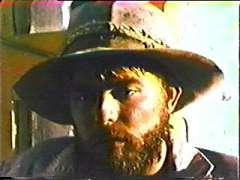Valentine's is for Lovecraft
I am the very model of a cultist of the Tentacles
My basement's decorated with a sacrificial pentacle
I have the steady hand required for puncturing your ventricles
My existence is suspected by the crazy and eccentrical
I have intimate knowledge of conjunctions astronomical
I am a freakish catalogue of oddness anatomical
I chant the Necronomicon in eery and exotic crypts
And follow with a reading from the Pnakotic ManuscriptsAnd follow with a reading from the Pnakotic Manuscripts
And follow with a reading from the Pnakotic Manuscripts
And follow with a reading from the Pnakotic ManumanuscriptsI teach a freshman class at Miskatonic University
I'm practiced in eleven kinds of bestial perversity
In short, in matters eldritch, squamous, blasphemous, heretical
I am the very model of a cultist of the TentaclesIn short, in matters eldritch, squamous, blasphemous, heretical
He is the very model of a cultist of the TentaclesI have unlikely relatives with luminescent pseudopods
I know my Elder Races from my Old Ones and my Outer Gods
I am considered eminent by oracles and hierophants
I've got the Yellow Sign embroidered on my favourite underpantsI lurk in sunken citadels of basalt and obsidian
With architecture that's distinctly weird and non-Euclidian
I've freezer-fulls of nosey-parkers pickled in preservatives
I buy the Daily Mail and I donate to the ConservativesI buy the Daily Mail and I donate to the Conservatives
(With apologies to Gilbert & Sullivan).
I buy the Daily Mail and I donate to the Conservatives
I buy the Daily Mail and I donate to the Conservaservatives


